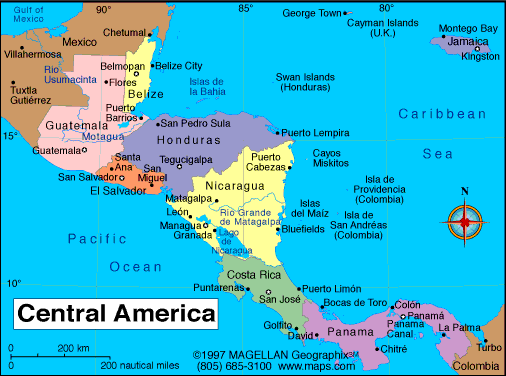

During our MCC orientation, someone said to us, "You haven´t ridden a bus if you´ve never shared it with animals!" I don´t think this is true, as we´ve had plenty of interesting bus rides (both here and in the US) without animals. But today, we had our first experience sharing a bus row with a chicken. It´s unlikely that the chicken will survive the week, as many Nicaraguans prepare a special chicken dish for Christmas. But the chicken didn´t know that and was well-behaved, and so were we.
Managua has a well-developed bus system, serviced primarily by handed-down buses from US school districts (our first week here we saw a bus with `Harrisburg City Schools´ painted on the side). Some buses, like the one in the picture, are in good condition. Others are bone-jarring buckets of bolts that make riding quite an adventure.
The chicken on our bus is not pictured. However, the two roosters in the photo are from our neighborhood, perhaps some of the ones who announce the day around 4:30 every morning.
--Alan




